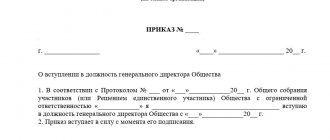Advertiser, who is responsible for advertising?
Is it possible to shift responsibility to another person?
In our practice, we often encounter agreements in which advertisers transfer all responsibility for violation of advertising and copyright laws to the advertising agency. Such agreements are often brought by defendants in copyright claims of photographers whom we represent in court, in the expectation that they will be able to avoid liability. By coincidence, “advertising agencies” are often unknown to anyone, do not operate, or have even been liquidated. Russian legislation does not provide for the possibility of excluding liability by transferring it to some other person, otherwise this would mean the possibility of changing the culprit for violating an antimonopoly, administrative and even criminal offense in the field of intellectual property turnover.
In contracts with the media for advertising placement, there are constantly references to the fact that the media, the editorial office or the editor are responsible for compliance with the specified legislation, and therefore advertisers get the impression that they need to rely entirely on the media. In fact, the media is responsible only as an advertising distributor in accordance with the Advertising Law for itself, which does not exclude the liability of an advertiser who:
- Approved the advertising layout (in writing, by email or took other actions indicating this)
- Did not exercise sufficient caution when approving the advertising layout for violation of advertising legislation in general;
- Did not check the legality of the copyright objects used (texts, images, etc.)
Responsibility for the use of copyrighted objects occurs both in the case when the advertiser himself provided them, and when this was done by the media or other persons.
In the case of provision of copyright objects to third parties without the consent of their copyright holder, of course, this does not entail such significant liability, but is a fairly new phenomenon. This practice arose after a legal dispute between ZAO Oktyabrskoye Pole (copyright holder and plaintiff) and the Perekrestok Trading House, which the court ordered to pay 10 thousand rubles for the fact that the store of the same name did not check the legality of using the photograph in the TV-Park magazine. , which was sold in this store. The advertiser is responsible for violation of the following requirements:
- distribution of false advertising;
- distribution of false advertising;
- violation of general advertising requirements;
- violation of rules for the protection of minors in advertising;
- advertising of goods whose advertising is prohibited;
- violation of the rules for advertising goods during remote sales;
- violation of promotional advertising rules;
- in social advertising, mention of specific brands (models, articles) of goods, trademarks, service marks and other means of their individualization, of individuals and legal entities is not allowed, with the exception of mention of government bodies, other government bodies, bodies local government, about municipal bodies that are not part of the structure of local government, and about sponsors;
- violation of the storage period for advertising materials;
- violation of legally established rules for advertising alcoholic beverages, weapons, medicines, medical equipment, medical products and medical services, including treatment methods, dietary supplements and food additives, baby food products, risk-based games and bets, financial services, securities, annuity agreements, mediator services.
Advertising on websites on the Internet
In some cases, when the information posted on the website is aimed not so much at informing consumers about the activities of the organization or the goods sold, but at highlighting certain goods or the organization itself among homogeneous goods or organizations (for example, in the form of a pop-up banner), such information, according to the Letter of the Federal Antimonopoly Service of the Russian Federation dated July 29, 2010 No. АЦ/24295 “On price information posted on the company’s website,” can be recognized as advertising.
Accordingly, if the price of a service or product is indicated in information recognized as advertising, in this case it must be indicated in rubles. The latter is especially relevant for travel companies and other organizations whose activities involve the use of foreign currency in working with consumers. Postal and SMS mailings.
Spam Distribution of advertising via SMS, email and various Internet instant messengers (Skype, ICQ, Viber, etc.) is permitted only with the prior consent of the subscriber or addressee to receive advertising.
In this case, advertising is considered distributed without prior consent unless the advertiser proves that such consent was obtained. The advertising distributor is obliged to immediately stop distributing advertising to the person who contacted him with such a demand. Automatic distribution by collecting addresses or mobile phone numbers is not permitted. Banner advertising
A banner, as an advertising medium that is obviously limited in size, often becomes the object of claims from the FAS.
The main complaints boil down to the fact that the advertiser provided incomplete information. Despite the objective impossibility of placing all information about a product (service) on such an advertising medium, the courts support the position of the antimonopoly authority that referring to a website as a source of additional information for the purpose of fulfilling the requirements of the Advertising Law is unacceptable. Contextual advertising
Contrary to the above about banner advertising, judicial practice regarding contextual advertising regarding incomplete information is predominantly the opposite. Courts consider contextual advertising to be a type of “quick links” to the text of contextual advertising (that is, the page of the advertised product or service), which contains all the necessary information in accordance with Art. 28 of the Law on Advertising.
You can view or download a presentation on advertiser responsibility.
What happens if you violate
After the abolition of criminal liability for knowingly false advertising in 2003, only advertising of pornographic materials, including among minors and with their images, is recognized as a crime in our country.
“What can a marketer be imprisoned for? A short excursion into legislation"
Any other violations of advertising legislation are subject to administrative liability. The norms are divided into general and special:
- The general norm is Art. 14.3 Code of Administrative Offenses of the Russian Federation “Violation of advertising legislation.” The maximum possible fine under this article for legal entities is up to 500,000 rubles. , for credit institutions - up to 800,000 rubles.
- Special norms:
- Art. 5.9 of the Code of Administrative Offenses of the Russian Federation “Violation of the terms of advertising of business and other activities during the election campaign” – up to 30,000 rubles. ;
- Art. 6.13 Code of Administrative Offenses of the Russian Federation “Propaganda of narcotic drugs, psychotropic substances or their precursors, plants containing narcotic drugs or psychotropic substances or their precursors, and their parts containing narcotic drugs or psychotropic substances or their precursors, new potentially dangerous psychoactive substances” – up to 1,000 000 rub. or suspension of work for up to 90 days with confiscation ;
- Art. 6.20 of the Code of Administrative Offenses of the Russian Federation “Production by a legal entity of materials or objects with pornographic images of minors and circulation of such materials or objects” – up to 5,000,000 rubles. or suspension of work for up to 90 days with confiscation ;
- Part 4 Art. 14.3.1 Code of Administrative Offenses of the Russian Federation “Violation by an advertiser, advertising producer or advertising distributor of the ban on advertising of tobacco, tobacco products, tobacco products or smoking accessories” – up to 600,000 rubles.
We have given the maximum amounts of fines for legal entities; for physicists and officials the figures are lower.
If an entrepreneur knowingly or accidentally held a promotion that is essentially a lottery, but did not comply with the requirements of the Federal Law “On Lotteries,” liability may arise under Art. 14.27 Code of Administrative Offenses of the Russian Federation “Violation of legislation on lotteries” – up to 350,000 rubles. for legal entities.
False Advertising: Know Your Enemy
Defamatory.
This is advertising in which competitors are accused of breaking the law, ignoring ethical standards, dishonesty, deviating from moral standards, and deceiving customers. This category also includes advertising that insults people who do not use certain goods or services. For example, in an advertising video for “Tsar-Father” dumplings, the main character pushed a plate away from himself with the words: “Your ravioles will give you stomach cramps!” This was an open attack on the competitor of the Tsar-Father.
Umbrella.
Advertising promoting a prohibited product: for example, alcoholic beverages. This is usually done like this: the manufacturer uses some characteristic feature that immediately identifies the true product, but “covers” it with a product permitted for advertising. An example is the scandal with: there was no advertising on the billboard, just a landscape with a musher and a dog sled, but a characteristic logo with a dog’s paw print was used. The manufacturer claimed that it was advertising to a community of husky dog fans.
Comparative.
As the name suggests, one manufacturer uses comparisons with a competitor to elevate their brand. This refers to derogatory comparisons, beliefs in the advantages of one’s product over a competitive one, and deliberate reduction of the positive characteristics of another product. A classic example is the endless wars between the fast food chains McDonald's and Burger King:
The comparison can be implicit - when the manufacturer uses synonyms that hint at a competitor, but does not directly name it. For example, as part of the Lada Vesta advertising campaign, VAZ released an advertisement with the slogan “It’s time to part with the non-Vesta,” offering to exchange old cars for new ones through a “trade-in” scheme. Moreover, the “bride” was Asian - that is, marketers pointed to Asian cars, the main competitors of domestic ones. The Hyundai dealer did not stand aside, after some time releasing an advertisement with the slogan “Our non-Vestas do not break.” A clever find, although the ethics of this ad can be debated.
Unreliable.
Or advertising that misleads customers. A typical example is the sale of homeopathic remedies with advertising campaigns that convince consumers of the miraculous properties of “sugar pills.” More than once there have been situations when skeptics conducted an examination, found out that magic drugs were just dummies, and forced manufacturers to pay compensation to deceived customers.
Unethical.
This is advertising that humiliates specific individuals, organizations or social groups, denigrates religious or national symbols, contains elements of racism, Nazism, etc. One example is an advertisement for Intel processors, which depicts several black athletes in a running pose and a white man. The advertisement was signed with the line “Multiply the productivity of computers. Increase employee efficiency." Intel later apologized for racism.
There are two more types: the first is when an advertisement is placed on a television or radio broadcast network without warning that it is an advertisement. And the second is mimicry, thoughtless repetition by some brands of advertising campaigns of others, plagiarism and cloning. In the second case, they are unscrupulous on the success of competitors.
Types and signs of inappropriate advertising
The definition that can be given to inappropriate advertising is a type of advertising product that conflicts with legal requirements. Advertising that is essentially inappropriate is:
- incorrect;
- deceitful;
- hidden;
- prohibited (by subject, place or time of promotion);
- other that does not comply with the law.
Based on the main criteria given in the legislation, inappropriate advertising can be divided into three large groups, each of which is unacceptable from the point of view of legislation (Article 5 of the Federal Law “On Advertising”).
False advertising
It happens that the information in advertising does not correspond to reality: the data is distorted, substituted, embellished, etc. In fact, such promotional product should not be provided to the consumer. You can recognize it by a number of signs (even one is enough):
- "We are better than you." The advertiser unfairly claims that his product has advantages over the products of other brands or manufacturers.
- Inaccuracy, lies, omissions. The advertiser must be reliable in any characteristics of the advertising object:
- composition;
- properties;
- manufacturing method;
- service life and shelf life;
- purpose;
- availability of documents confirming quality;
- conditions and methods of use;
- seller or manufacturer.
- “But no, it’s over!” You cannot include in advertising information that does not correspond to the truth about the possibility of buying this product in the presented configuration, at a certain time or in a specified place, as well as about the volume of its production and/or sales.
- “The price has gone up!” You cannot indicate in advertising the price of a product that is not valid at the time of sale, false information about a discount, the possibility of preferential purchase, payment in installments or on credit, competitions, lotteries, drawings, etc.
- "The company guarantees ." All obligations indicated in the advertisement must be truthful and relevant: delivery, repair, replacement, product maintenance, warranty period, etc.
- “Checked!” If the object of advertising has undergone official tests and research, as reported in the advertising message, then the advertiser is obliged to confirm such information with valid protocols.
- Copyright. Unauthorized use of exclusive intellectual property is not permitted.
- “I didn’t say that, or I said it, but not like that.” Public people or significant organizations are often invited to advertise goods or services; this is permissible and legal. But expressing an opinion on their behalf without their consent or even knowledge, or distorting it, is a violation of the law.
- Awards . If a product is advertised as being awarded any awards or distinctions, they must actually be given to the advertised item.
- True numbers . It is unacceptable to lie about the size of demand for the advertising object.
FOR EXAMPLE. It is forbidden to state that the advertised washing powder washes better than other specific products called “no notes”. Surely you have noticed that in television advertising the name of competitors’ powder is hidden or the expression “another popular brand” is used.
FOR EXAMPLE. When advertising non-alcoholic beer, one must not miss the information that it actually contains 0.5% alcohol.
FOR EXAMPLE. To protect themselves on this point, advertisers often insert wording like “limited quantity of goods” into the text.
FOR EXAMPLE. If a specific figure is required, the cliche “recommended price” is often used to reduce the risk of unreliability.
NOTE! The public washing of specially soiled T-shirts and tablecloths, or washing dirty dishes with two types of detergents, as usual in advertising, is not a study.
FOR EXAMPLE. You cannot cut out a phrase, for example, a politician, from another context and include it in the text of an advertising video.
FOR EXAMPLE. If you hear a statement in an advertisement like “90% of mothers choose Haggis”, take a closer look, the small print will probably say something like (out of 10 respondents), otherwise the advertisement may be considered unreliable.
A variant of false advertising can be deliberately false - deliberately misleading the consumer.
Signs of unethical advertising
Unethical advertising is a type of inappropriate advertising that offends the feelings of part of the target audience and contains information that is contrary to general morality (Article 8 of the Federal Law “On Advertising”). Signs of unethicality in advertising include insults contained in it in the form of words, images, comparisons regarding:
- race, nationality;
- gender, age, health;
- social status;
- professions;
- religion;
- political views;
- philosophical beliefs.
Also, advertising that defames to one degree or another will be considered unethical:
- objects of cultural heritage (domestic and global);
- state symbols, currency;
- religious attributes, symbols and images.
The criterion of ethics is evaluative, that is, dependent on the subject: what is acceptable for one may be an insult for another, therefore it is assessed in each controversial case separately.
FOR EXAMPLE. , which produces alcoholic beverages, created an advertising poster with the slogan: “On this the Russian land stood and will stand.” The poster depicted St. Petersburg in the background, with three bottles of vodka rising above it, and people with glasses standing nearby. The poster was deemed unethical.
False advertising
This is considered advertising products that discredit partners, competitors, citizens who do not use the advertised products, abuse trust or lack of awareness. Signs of unfair advertising are indicated in Art. 5 Federal Law “On Advertising”.
- Incorrect comparison of an advertising sample with competitors' products or simply similar products, even without indicating the name of the brand or manufacturer.
- Information discrediting the honor and dignity or business reputation of a competitor.
- A product is advertised that is prohibited from being promoted at this time, in this place, in this way.
- A slogan, trademark, name similar to other registered copyrights is used.
FOR EXAMPLE . The advertisement of the auto holding “A cut above”, where the car took off above other cars standing in a row, was found to be unfair.
It is difficult to prove bad faith if such comparisons are presented in a veiled but recognizable form, in the form of a parody. FOR EXAMPLE. In a video of a dumpling manufacturer, the hostess chased away a cat that stole a dumpling with the words “Dasha, shoot!” - this was a hint at a competitor, the Daria brand of dumplings. It was not possible to recognize the advertisement as unfair, despite the transparency of the hint, since there are no formal insults or references to the business reputation of “Daria”.
FOR EXAMPLE. Advertising of a number of products for an inappropriate audience, when a children's cartoon is interrupted by an advertisement for an erotic publication.
Punishment for false advertising
According to Russian legislation, advertising that is false or presented in violation of legal norms should entail liability to which the owner and distributor are held accountable.
Punishments for such illegal acts are defined in Art. 14.3 Code of Administrative Offenses of the Russian Federation.
| Type of offense | Measure of responsibility |
| Violation of the Federal Law “On Advertising”. | For individuals - penalties in the amount of 2 to 2.5 thousand rubles, for officials - from 4 to 20 thousand rubles, for organizations - from 100 to 500 thousand rubles. |
| Failure to comply with the rules for interrupting television programs with advertising, exceeding the time limits allowed for interruption, as well as launching advertising on TV during days of nationwide mourning. | Officials will be required to pay a fine of 10 to 20 thousand rubles, and organizations - from 200 to 500 thousand rubles. |
| Exceeding the volume allowed by law for print advertising in the media. | Officials will pay a fine from 4 to 7 thousand rubles, and organizations - from 40 to 100 thousand rubles. |
| Inclusion of election campaign advertising in films, religious programs and programs lasting less than 15 minutes. | Penalties for an official will range from 10 to 20 thousand rubles, for an organization - from 200 to 500 thousand rubles. |
| Violations of requirements for advertising of medicines, medical services, etc. | For individuals, a fine ranges from 2 to 2.5 thousand rubles, for officials - from 10 to 20 thousand rubles, and for organizations - from 200 to 500 thousand rubles. |
| Advertising of credit products that indicates only one component of their cost without indicating other components that may affect the final cost. | Officials will be required to pay a fine of 10 to 50 thousand rubles, and organizations - from 300 to 800 thousand rubles. |
Let’s figure out where to write a complaint to a person who has discovered unfair advertising. Since 2006, every citizen has the right to file a claim against an unscrupulous advertiser with the FAS (antimonopoly service). Currently, for your convenience, there are several ways to file a complaint:
- Directly during a personal visit to the department;
- By registered mail via mail;
- On the official website of the Federal Antimonopoly Service;
- Through the State Services portal.
The modern market is oversaturated with advertising. It often becomes too intrusive and even those who have not suffered material losses from it may suffer from the intrusiveness of advertising slogans. That is why it is necessary to know how to protect yourself in such cases from the invasion of unnecessary information into your life.







